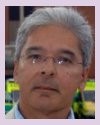The Diabetes UK Diabetes Specialist Nurse survey was launched in March 2016 to help us gain an understanding of the state of diabetes specialist nursing in 2016 and explore what change is needed to secure a sustainable DSN workforce. The survey has been funded by Novo Nordisk. The results are now available and the headlines are as follows:
- The survey indicates a profound mismatch between the capacity of the DSN workforce and steadily rising demand for diabetes services. DSNs told us that their workload has increased significantly, both in terms of number of patients and the complexity of the care they provide. However, rather than increases to staff numbers, almost a third of respondents said that there have been cuts to DSN posts in their team over the past two years.
- Around a third of respondents reported that there are currently unfilled DSN posts in their team. There appear to be particular difficulties in recruiting candidates to higher grades.
- Almost one in four report downgrades to DSN posts in their team over the last two years – suggesting that less qualified/experienced nurses are being recruited into specialist roles, with potentially serious implications for patient care.
- Well over half of respondents will be eligible to retire from the profession within 10 years or fewer, up from 40% in 2010. Over the same time period the number of people in the UK with diabetes is expected to increase by at least 700,000, taking the total number of people living with diabetes to 5.2 million by 2025.
- These pressures appear to be compromising quality of care and even patient safety. Around four in ten respondents consider their current caseload unmanageable and 78% have concerns that their workload is having an impact on patient care and/or safety.
As you can be seen, action is needed both to support our existing DSNs and secure a sustainable DSN workforce for the future. DUK are therefore calling on local and national decision-makers to urgently address workforce shortages and take action to ensure there are sufficient appropriately skilled DSNs to meet the needs of people with diabetes, now and in the future. See HERE:
